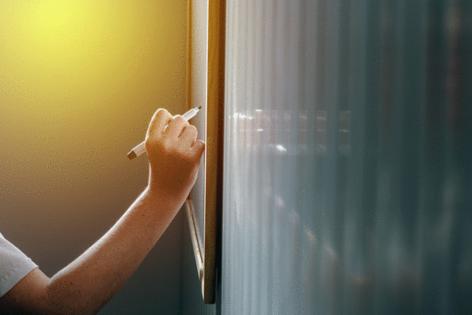The Kid Whisperer: How educators can work with, not against, each other to help kids
Published in Lifestyles
Dear Kid Whisperer,
I would appreciate some guidance. You trained teachers at my school in Behavioral Leadership. I think the strategies are great, but I have a few concerns with how some things are being implemented and would LOVE some advice and direction. I'm specifically looking for guidance on Delayed Learning Opportunities (DLOs) as it is my biggest concern so far, especially with students with disabilities.
Answer: The reality is that Traditional Discipline tends to fail all kids, especially kids with disabilities.
Lectures, warnings and punishments (the arbitrary placement of negative experiences on kids aimed at changing their behavior): How do those tactics work with kids? Right. Not at all.
How about trying to put a punishment on a kid immediately while the kid can't think and learn and while the teacher can't think and teach? Right. That doesn't work either.
How about if you try to do all of this while the classroom teacher is dysregulated because she is teaching 25 other kids, and the intervention specialist (IS) is dysregulated because she is not teaching, but instead is being used as a fire-putter-outer by the entire school because everyone is using Traditional Discipline and all of the behaviors are becoming slightly worse every day? Right. It doesn't work at all.
So, first we need to be making behaviors better school-wide, instead of worse, every day, by using Behavioral Leadership with all kids so ISs and everyone else can be doing the jobs they signed up for instead of cleaning up the messes created by Traditional Discipline all day long.
Next, with all kids, including kids with disabilities, we need to treat discipline exactly like we treat academics: when a kid doesn't know how to do something -- either how to use a pro-social behavior, or how to be responsible for their actions -- they need to either be taught to do the pro-social behavior, or be required to solve the problem that they caused. These lessons are not optional.
Here's the piece that is so important for the Special Education world: Just like academics, we need to work together as experts in education, with our different areas of expertise (as classroom teachers, counselors, ISs, Occupational Therapists, administrators, school psychologists) and come together to create appropriate LESSONS for kids, whether or not they have a disability.
This is obviously completely impossible while using Traditional Discipline and immediate punishments. It would be impossible to get all of the experts together to come up with a real lesson the moment a kid was using a big negative behavior. Plus, if it's a punishment, it would be very unlikely if it changed the behavior anyway.
In contrast, when we delay the learning opportunity with calm empathy, as described in our trainings and in my book, we are afforded the time to rally all of the various experts together to create an authentic, appropriate Delayed Learning Opportunity (DLO) for that individual kid that considers all relevant details of that specific kid, including age, disability and so on.
It is highly possible that kids can have a disability AND be seeking attention, control or avoidance. If we are using Traditional Discipline, often with anger and/or frustration, and/or demands, we are systematically reinforcing negative behaviors from everyone, including kids with disabilities. In this scenario, it is difficult or impossible to tell whether the behavior is due more to a disability or if it is control, attention or avoidance-seeking, since Traditional Discipline does not significantly give kids healthy control and can invite power struggles. When you use DLOs correctly, all professionals can work together to TEACH appropriately.
And we err on the side of kids being capable. Maybe, hypothetically, it is truly impossible for a hypothetical 8-year-old with a disability to practice sitting in a chair for 15 minutes in the morning before school. But maybe it's possible for him to practice sitting in that chair for 2 minutes. If it's not, then he shouldn't be asked to sit in a chair for 2 minutes during class.
Special education and classroom teachers need to align on this so that they are not asking kids to do things they can't do, both before they fail and after they fail (hopefully before).
PK-12 educators are some of the best people in the world, because they care about other people more than they care about themselves. Why else would they do their jobs? They’re certainly not doing it for the money. Traditional Discipline creates an impossible situation for the best people (educators). Behavioral Leadership and Delayed Learning Opportunities create a real way for the best people to work together to do the most good for the kids who need their help and guidance.
____
©2025 Tribune Content Agency, LLC.
























Comments